Eight wins out of eight - are Brazil a team reborn post-World Cup?
- Published
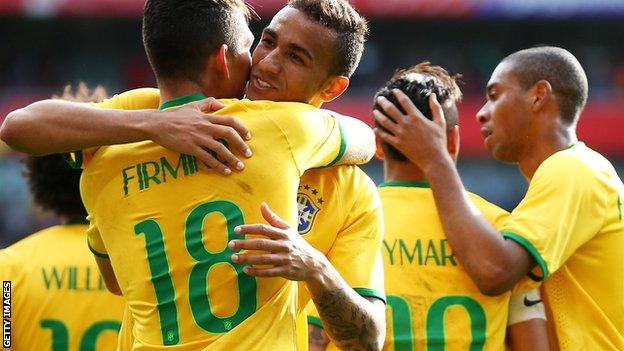
Brazil have now won eight out of eight games since their World Cup failure last summer.
When they sadly packed away their yellow shirts last July, most Brazil fans must have thought that it would be some time before they would be reaching back into the wardrobe for that particular item.
The astonishing 7-1 World Cup semi-final defeat to Germany was then followed by the reappointment of the snarling Dunga as national team coach. Morale was low.
Fast forward eight months, though, and the mood is more upbeat. Sunday's 1-0 victory over Chile at the Emirates Stadium in London means that Brazil have now won eight consecutive matches.
Have Brazil won their prestige back?
The audience of Brazil's massive TV Globo would seem to think so.
They were asked the question during Sunday's game against Chile game, before Brazil had taken the lead. In the online vote 63% answered in the affirmative, won over by triumphs over heavyweights such as Argentina and France.
The numbers since the World Cup are impressive: eight games, eight wins, 18 goals scored and just two conceded.
Brazil's results in Dunga's second spell as coach | |
|---|---|
6 September: Beat Colombia 1-0 | 10 September: Beat Ecuador 1-0 |
11 October: Beat Argentina 2-0 | 14 October: Beat Japan 4-0 |
12 November: Beat Turkey 4-0 | 18 November: Beat Austria 2-1 |
26 March: Beat France 3-1 | 29 March: Beat Chile 1-0 |
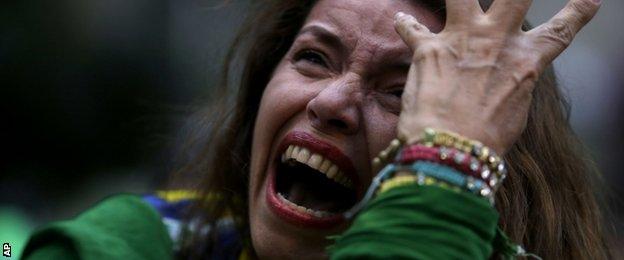
The 7-1 World Cup semi-final defeat was too much for one Brazil supporter to take in a fan park in Belo Horizonte
Dunga - captain of the 1994 World Cup winning side - was previously in charge between 2006 and Brazil's 2-1 defeat by the Netherlands, external at the quarter-final stage of the 2010 World Cup. He is often referred to as unloved but while the wins are piling up, Dunga's sermons on the importance of commitment are well received.
Of course, none of the eight victories has been on home soil - Brazil will have to wait until the World Cup qualification campaign starts in October before that happens.
But after the experiences of last year, playing thousands of miles from home has given Dunga and his men some much needed breathing space.
The continuing rise of Neymar
At the tender age of 23, Neymar appears to have completed the journey from promise to reality.
He, famously, was injured and did not play against Germany in that semi-final thrashing - and the team's collapse only underlined his importance to the cause.
Dunga immediately recognised this and chose Brazil's number 10 as his captain.
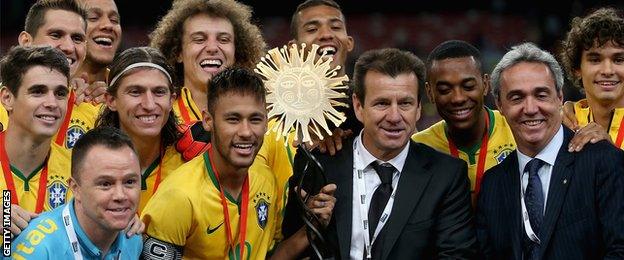
Brazil defeated Argentina 2-0 in Beijing in October to win the Super Clasico de las Americas
Some feared it had come too soon but the Barcelona striker appears to have relished the responsibility. Of the 18 goals Brazil have scored since the World Cup, he has got eight.
And with the exception of two stoppage-time substitutions he has played in every minute of every game.
Before the move to Spain there was a fear that his career had stalled, and that he might turn out to be something of a rabbit killer, decisive against the weaker teams but innocuous against the strong. He has since convincingly proved - not least to himself - that this is not the case.
Whether he operates high on the left or in a free role across the attacking line, he is the man Brazil trust to break the deadlock.
The emergence of key new players
Only nine of the Brazil squad for their latest round of friendlies went to the World Cup, with the biggest renewal taking place in attack.
Probably the most important new addition is centre forward Roberto Firmino of German side Hoffenheim, who was largely unknown to the local public before his debut call-up late last year.
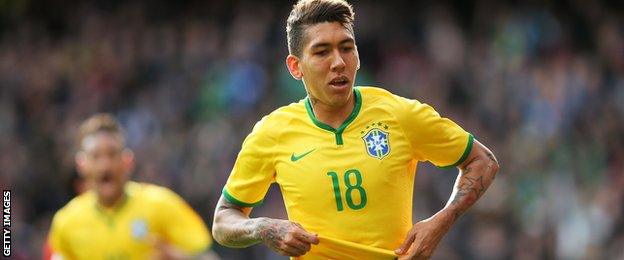
Roberto Firmino scored 16 times in the Bundesliga last season for Hoffenheim
The 23-year-old came off the bench against Austria in November to score a stunning late winner, combined well with Oscar last Thursday to set up the vital equaliser against France and, once again off the bench, showed excellent movement and a cool head to score the only goal against Chile on Sunday.
Offering more mobility than World Cup centre forward Fred, this is the biggest change to the shape of the Brazil side that Dunga has made.
It is significant that Firmino's goal against Chile was set up by a superb long pass from right back Danilo. From Carlos Alberto to Cafu, Brazil have had more spectacular players in this position than most - but the Porto man is proving a splendid all-rounder. He can join the attack as an element of surprise, but his defensive skills are also sound - he made a vital covering tackle on Karim Benzema against France last Thursday.
Centre-back Miranda was perhaps the most inexplicable omission from the World Cup squad.
He has been an ever-present since, at long last an established member of the team. He has been showing the type of no nonsense defending that has been so important in Atletico Madrid's recent success - and that was so lacking in the thrashing by Germany.
And at the age of 32, keeper Jefferson of Botafogo has been athletic and competent.
The big 'but' - how much has really changed?
There is now more mobility from the central striker, but Brazil's basic approach is still very similar to the one they showed last summer.
The great Tostao, 1970 legend and the wisest critic in the Brazilian game, argues that "our football declined when we stopped giving value to passing the ball", and complains that it is more than two decades since Brazil produced a world-class central midfielder who could pass the ball.
World Cup moments: Germany destroy Brazil
Tostao, of course, was lucky enough to play with Clodoaldo and Gerson in the engine room. Later Brazil could boast Falcao and Toninho Cerezo in their much-loved 1982 side. Nobody comparable has emerged since.
The current side remains one which is happiest on the counter-attack - and the 32 fouls they committed against Chile (their opponents made 15) reveal that the ugly aim of interrupting the flow of the game remains intact.
It is a statistic that also shows just how seriously Brazil are taking these friendlies. Against France last week Dunga ensured there would be little flow to the last 10 minutes by making five substitutions, protecting his 3-1 lead as if it was a World Cup final.
Friendlies, though, are notoriously unreliable guides. Brazil may have won their last eight matches, but the record of Luiz Felipe Scolari's side going into the World Cup was even better - nine straight wins, 30 scored, two conceded. When the real stuff started, it all counted for nothing.
The first genuine test of Dunga's Brazil, then, is coming up in the Copa America in Chile in just over two months' time.
Looking good for the Copa America?
The Copa America is not easy to predict.
Of a field of 12, eight make it to through to the knockout rounds, where drawn games go straight to penalties after 90 minutes. Last time round, in 2011, Paraguay went all the way to the final without winning a single game.
The tournament is also used by many teams as a training ground for the next set of World Cup qualifiers, which get under way later this year.
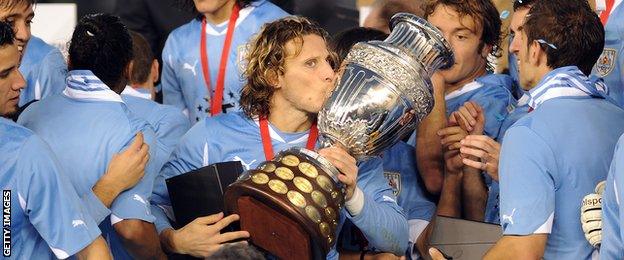
Former Manchester United striker Diego Forlan scored twice as Uruguay won the 2011 Copa America
But the field looks strong for June's competition. Hosts Chile have never won the competition, and will be under pressure to put that right. They have had some mixed results in friendlies at home - with big wins against Peru and Venezuela but a draw against Bolivia and a defeat by Uruguay.
In an explicit bid to avoid the kind of emotional meltdown Brazil appeared to suffer last year, Chile are now continuing their preparations by playing in Europe.
Without a senior title since 1993, Argentina have a generation desperate to get their hands on some silverware. Coach Gerard Martino has a huge range of attacking options with Sergio Aguero, Gonzalo Higuain and Carlos Tevez all competing for one place.
Reigning champions Uruguay have been conducting a quietly successful rebuilding job and will not give up their title without a fight. And then there is Colombia, boosted by their best ever World Cup last year and with a very interesting collection of strikers and attacking midfielders.
In a 6-0 win over Bahrain, Radamel Falcao looked sharp, scoring twice, while Real Madrid's James Rodriguez is still to return from injury. Coach Jose Pekerman said before the World Cup that 2014 would mark the moment when Colombia took a place at the game's top table - and the Copa could prove him right.
Colombia are in Brazil's group, and their meeting in Santiago on 17 June promises to be one of the highlights of the competition - and a true test for Dunga's rebuilt Brazil.
- Published30 March 2015
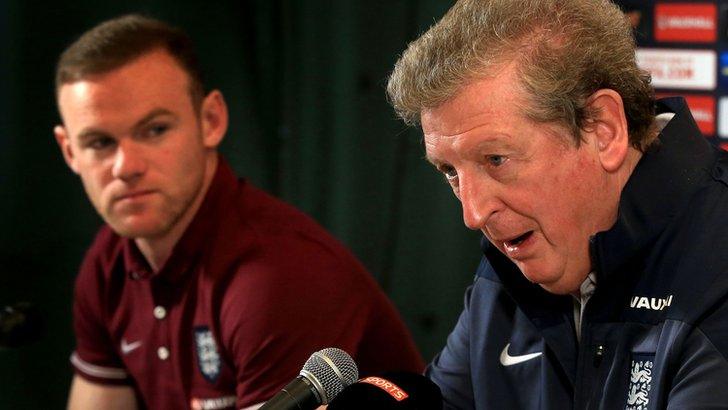
- Published30 March 2015
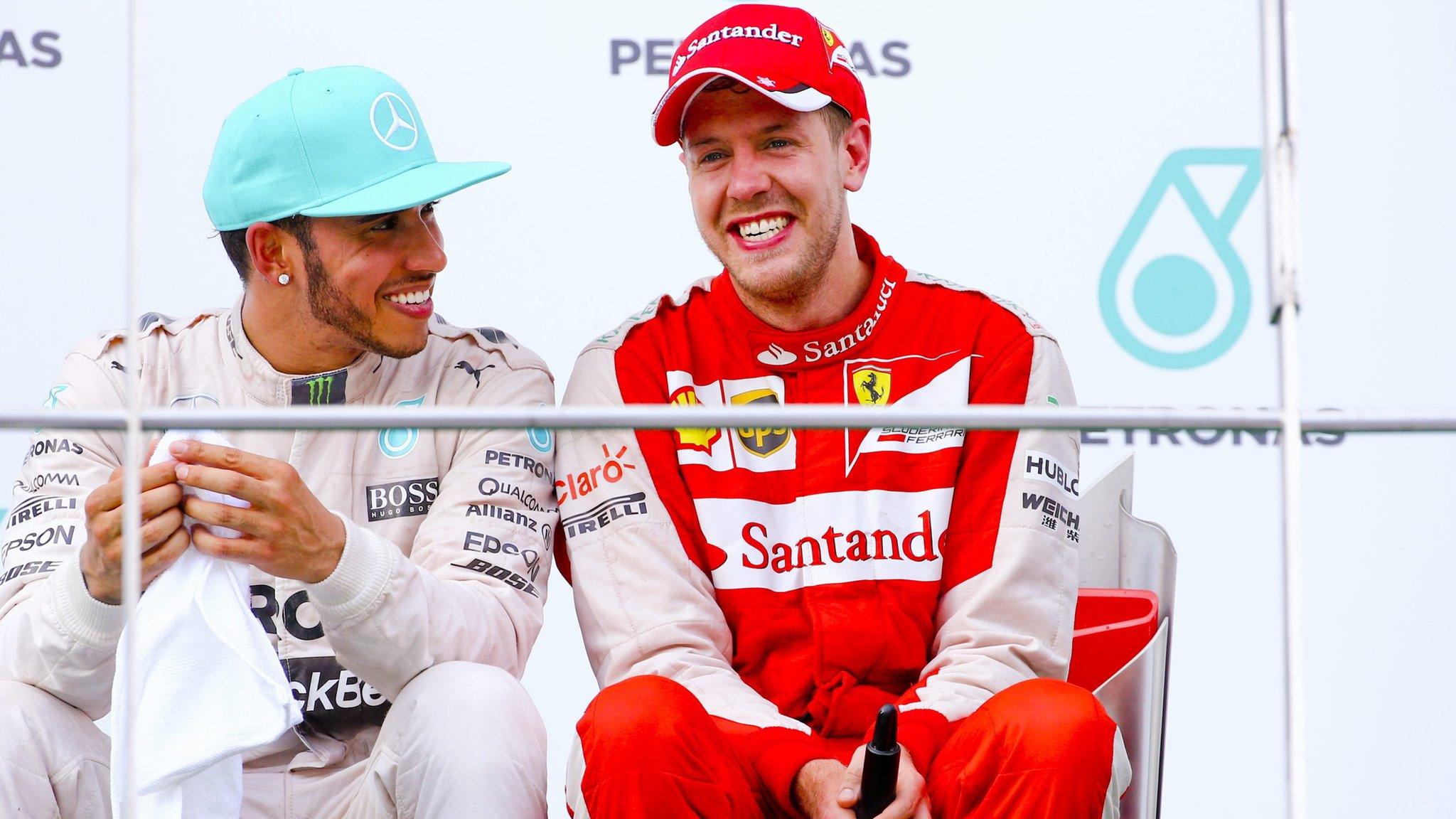
- Published30 March 2015
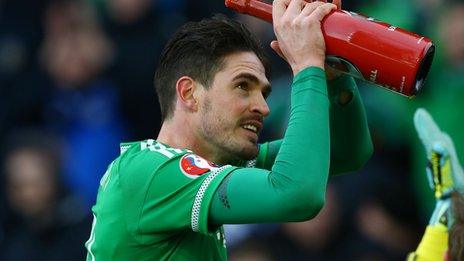
- Published29 March 2015
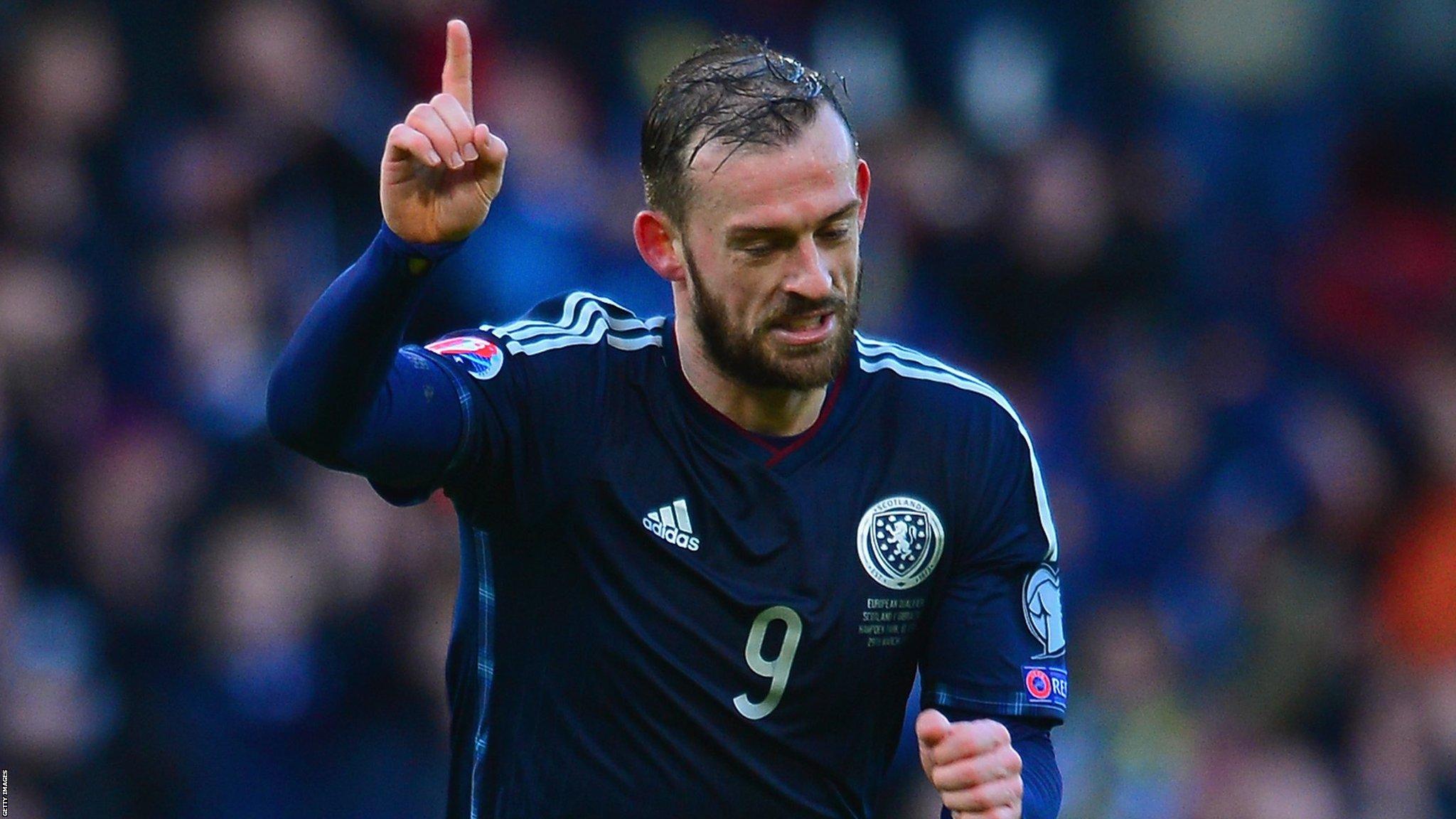
- Published29 March 2015
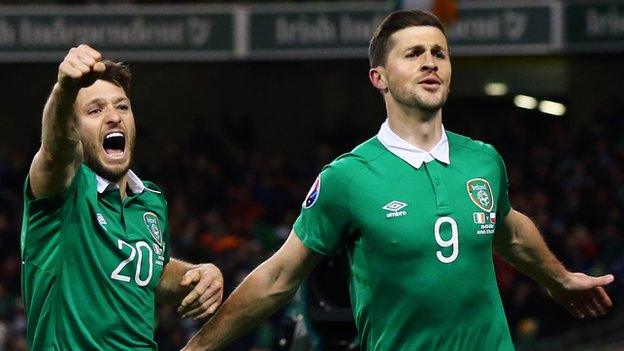
- Published29 March 2015
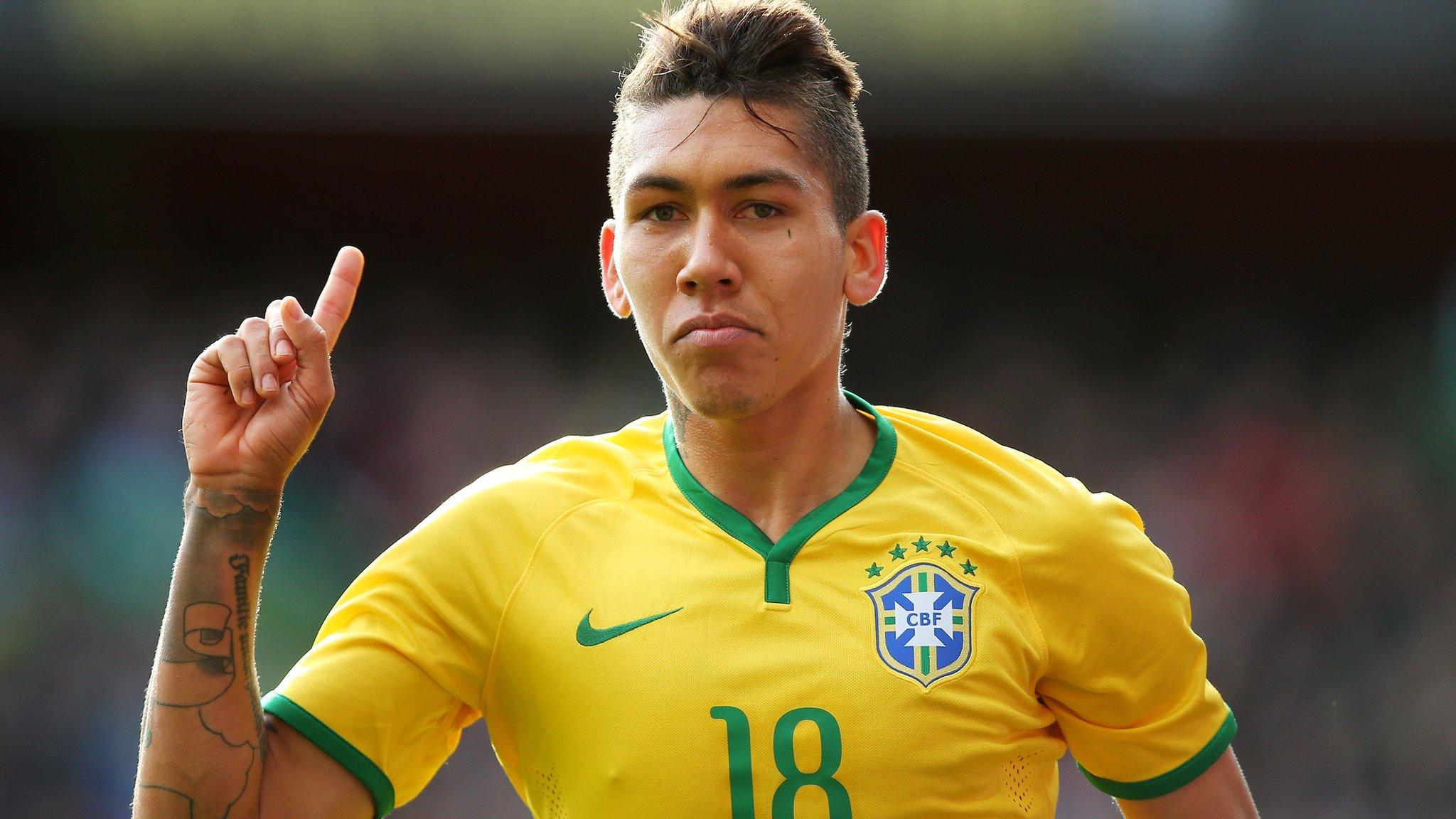
- Published8 July 2014
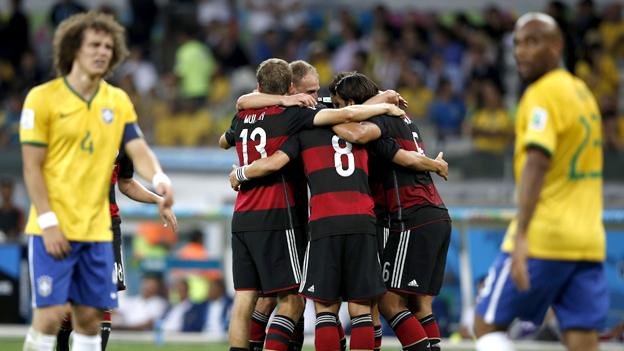
- Published20 June 2016

- Published7 June 2019

- Published2 November 2018
